Yesterday was Cadence’s annual mixed-signal technology forum. I think that there was a definite theme running through many of the presentations, namely that wireless communication of one kind or another is on a sharp rise with more and more devices needing to connect to WiFi, Bluetooth and so on. This was most obvious during… Read More
Electronic Design Automation
Who Really Needs USB 3.1?
USB is certainly the most ubiquitous of the Interface protocols. I would bet that everybody is using USB everyday (I mean activate a USB connection, as we also use PCIe or SATA even if we don’t realize that we do it), but which application will get benefit of the 10 Gbps delivered by USB 3.1? Before precisely answering the question, … Read More
Imec and Coventor Partner Up
Today imec and Coventor announced a joint development project for 10nm and 7nm process development. Imec, which is in Leuven Belgium, is a partner with pretty much all the semiconductor companies that are planning work at these advanced nodes. It mostly does pre-competitive research and development. This type of research is … Read More
Designing Hardware with C++ and its Advantages
Very recently, I was seeing intense discussions on the need for agile hardware development just like agile software and ideas were being sought from experts as well as individuals. While in software world it has already evolved, in hardware world it’s yet to see the shift in paradigm. My point is that the end goal of agile hardware… Read More
3 reasons to focus on hardware dependent software
Why is software for modern SoCs so blasted expensive to develop? One reason is more software is being developed at the kernel layer – hardware dependent software, or HdS. Application software often assumes the underlying hardware, operating system, communication stacks, and device drivers are stable. For HdS, this flawed assumption… Read More
A Brief History of ASTC and VLAB Works
When I worked for VaST our engineering was in Sydney Australia. To my surprise there was another, entirely independent, group working on virtual platform modeling and tools in another place in Australia, in Adelaide. Is there something in the Fosters? They had originally been part of Motorola Corporate R&D and Software Group,… Read More
ANSYS Electronics Simulation Expo – A View from Industry
As we are seeing more and more automation in most of our activities, not only through software but also smart electronics (at cutting-edge technologies) equipped with processors, micro-controllers, sensors and so on which make a whole system as an integrated entity on a small piece of semiconductor intertwined with other systems… Read More
Virtual Platform Powers AUTOSAR Software Development
As a significant part of our life is spent in travelling, it’s natural that automotive sector continues to get traction with a significant push towards electronics and automated solutions for automobiles such as cars to provide safety, comfort and entertainment. These solutions are provided by complete systems which operate… Read More
Two New Announcements at ITC from Synopsys
Each year at the International Test Conference(ITC) we hear about the latest advances from the testability side of both EDA vendors and academics. This year Aart de Geus, Chairman and Co-CEO of Synopsys delivered a keynote speech titled, “Testing Positive, for Complexity“. Yesterday I spoke with Robert Ruiz and… Read More
Crossfire on Continuous Path of Improvement
In an ever growing world of IPs, it’s essential that a tool which vouches to simplify designer’s job of IP development and help improving its quality remains versatile to encompass various formats, databases, common data models, standard libraries, scripting etc. that are used in the development of IPs and their exchange between… Read More


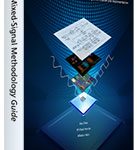


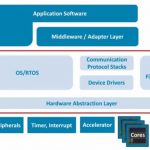

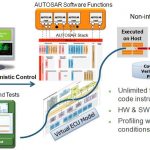
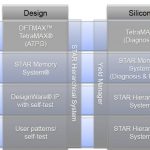
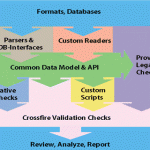
TSMC vs Intel Foundry vs Samsung Foundry 2026